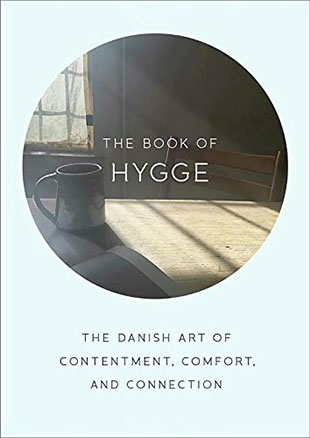"The Danes, considered to be among the happiest people in the world, have enjoyed hygge for hundreds of years. Denmark's high standard of living, decent health care, gender equality, accessible education, and equitable distribution of wealth all contribute to the measurable happiness of the Danish people. But a determined pursuit of happiness doesn't necessarily lead to well-being. At the heart of Danish life, and at the core of hygge, is the deeper stability of contentment.
"When we are content, our daily actions are infused with a quiet satisfaction that we share with those around us. We become aware of and responsible for other people's well-being and they, in turn, for ours. Hygge captures a way of being with other people, caring for them and ourselves.
"In our overstretched, complex lives, hygge is an uncomplicated daily practice that engages us, keeping us attuned to our surroundings and open to empathy and wonder.
"Hygge is part of the language of human action and interaction all over the world. To hygge is a universal impetus revealed in the small rituals, gestures, and daily experiences that unite and define us all.
"We all hygger: gathered around a table for a shared meal or beside a fire on a dark night, when we sit in the corner of our local café or wrap ourselves in a blanket at the end of a day on the beach. Lying like spoons, baking in a warm kitchen, bathing by candlelight, being alone in bed with a hot-water bottle and a good book – these are all ways to hygge. Hygge draws meaning from the fabric of ordinary living. It's a way of acknowledging the sacred in the secular, of giving something ordinary a special context, spirit, and warmth, and taking time to make it extraordinary."
